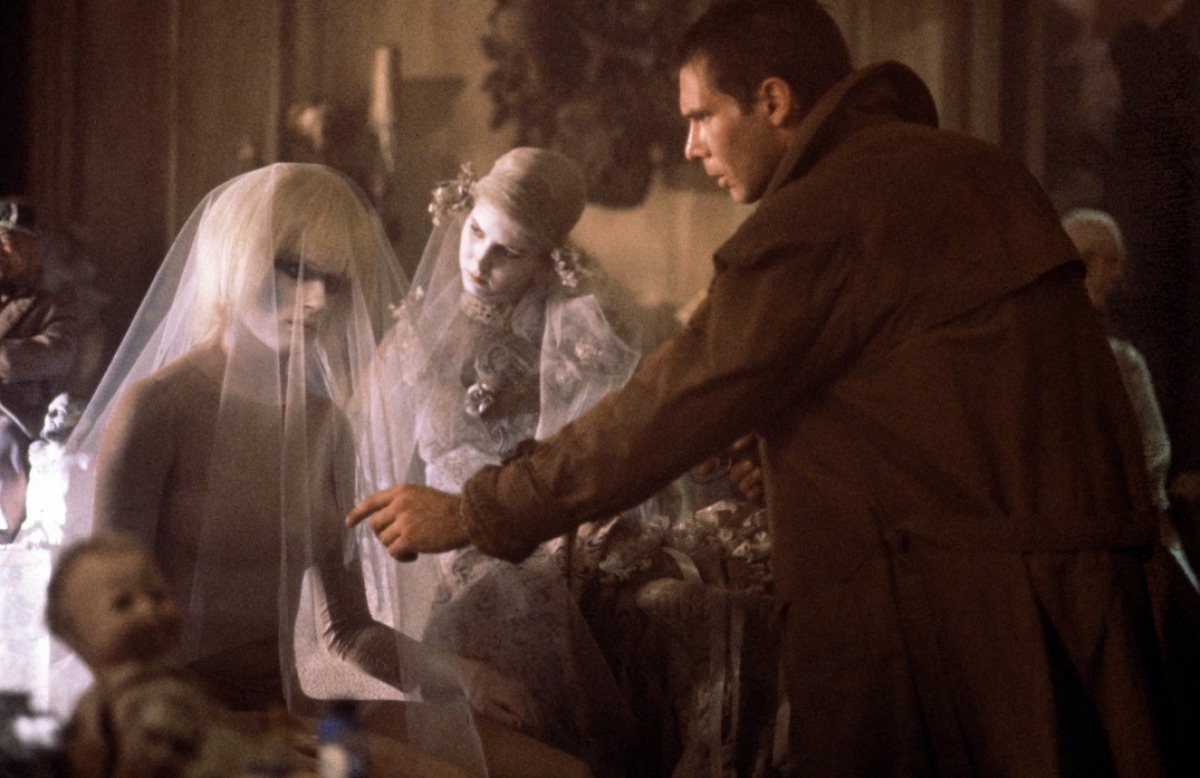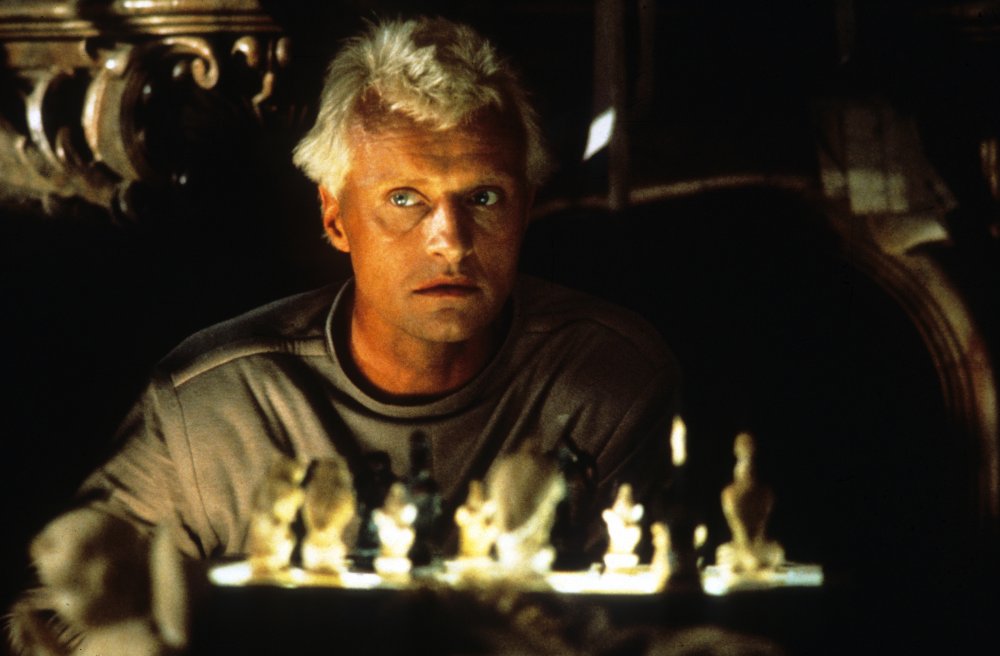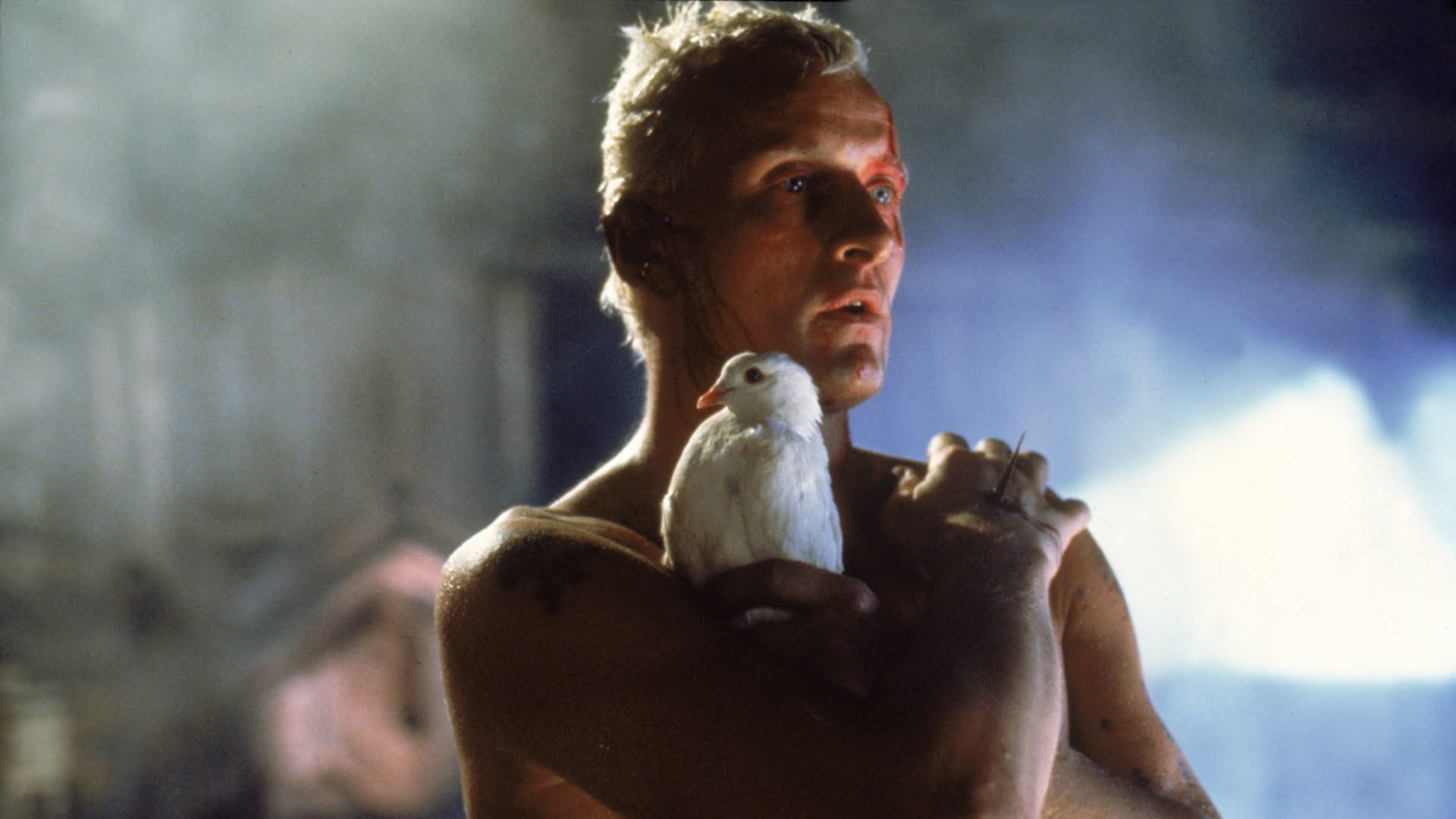4. The never-ending class struggle

The future can never be accurately portrayed if the losers aren’t represented as well. And to no surprise, the background of “Blade Runner” is full of losers. The winners are in off-world colonies – in the novel they are stated as being genetically superior – while the rest of the dredge, you and me, are stuck in the rain-soaked future of Los Angeles. There are some in the future world of LA that enjoy luxury, such as those at the top of the corporate food chain, but for those all the way down, it’s the same old story.
Deckard, once disillusioned by being a Blade Runner (in the film also referred to as cops, but it’s not a stretch to refer them as assassins), is called back by his old boss Bryant (the great Emmet M. Walsh) to hunt down four replicants. At first, Deckard denies the offer, but Bryant states the painfully obvious truth: ‘You know the score pal, you’re not a cop, you’re little people.”
Communism was supposed to be the cure for class struggle and give reign to the proletariats. Instead, it garnered one of the most horrendous systems of government known to man. Free-market capitalism was supposed to be fair and balanced (gee, doesn’t that sound familiar?) but has instead garnered massive inequality. There will be never ultimate fairness; some people will always have more, and some will have less. Money will never be equally distributed because some people will always want more.
As we see again, the relevancy of “Blade Runner” is in its depiction of the future. Here, we have a little guy that is forced to play ball or else be excluded from the system and be open for harassment, and it’s better to sell out than to be alone, because the loners usually don’t make it in a harsh world. So it goes for many; you might not like the system, you might hate your job, but you get to play ball because that’s the way it works. The massive fuck-ups of corporations will have to be dealt with by little people like Deckard, by you and me. That’s how it is now and that’s how it will always be.
3. Automatization and the rise of androids

Currently, economists have trouble predicting how the job market will look in the next 50 years. Modern technology, funded by corporations, is developing at such a rapid rate that it’s hard to guise the full impact it will have on the economy. What is expected is that robotics, guided by advanced artificial intelligence, will take over many fields of employment. Many notable jobs will soon be obsolete. There’s even talks by notable intellects that a universal basic income is the only thing that will save people from the despair of poverty.
In “Blade Runner”, artificial intelligence has become so advanced that they transcend even the greatest of human minds. The Tyrell corporation makes them not only smarter, but also physically superior. Yet, without the virtue of organic birth, they endure fewer rights than human beings, no matter their superior characteristics.
It seems unlikely that in our lifetime, such advanced artificial intelligence will emergence in the workforce, but we will certainly see a primitive prototype and their presence will change the job market indefinitely. Though they may not think or feel like the replicants of “Blade Runner” (yet), ethical questions surrounding the lives of these machines should be asked long before one of them passes the Turing test.
There’s a good chance, however, that no matter the warnings from Mary Shelley or Isaac Asimov, or from current popular TV shows like “Westworld”, that their creation will come to fruition, no matter the dangers or the suffering we might inflict. This is what the human does over and over again, amassing great might without being aware of the sometimes terrifying repercussions.
To quote our favorite web-slinger, with great power comes great responsibility, but even if we can’t handle the responsibility, this great power is just too tempting to leave alone.
2. The retaliation of our creations or Prometheus Unbound

What if the Gods were right in punishing Prometheus? What if they were just trying to save mankind from themselves? Because they knew that if humans were exposed to too much power, they would use this to create a society that is not bound to the will of the Gods. Instead, it would pursue the divinity of man itself.
The excessive punishment of Prometheus was to make an example out of him, to make sure to the other titans that no one would overstep their bounds and thus leave humanity to their primitive state. If man leaves the comfortable confines of their caves, the consequences could be devastating; not just to the world around them, but to the soul of man. But stopping one man – or Titan in this case – is not enough. Others will rise and continue his quest.
The reasons for Mary Shelley giving her immortal classic “Frankenstein” the subtitle ”the modern Prometheus”, is debatable, but its story about a scientist acquiring the secrets of creation and its horrible consequences has obvious overtones to the classic myth.
In Ridley Scott’s later film “Prometheus”, man encounters one of their creators – their God – only to discover that this higher power had been planning humanity’s destruction for some time. In this same movie, a highly advanced android, with all the hallmarks of humanity (and superior intellectual skills), is considered a lower life form for the primitive notion – ranging all the way back from Descartes – that he doesn’t have a soul.
But it’s Scott’s masterpiece “Blade Runner” where we see the most heartfelt and painful of meetings between creation and creator – man and God. Roy Batty, after a long journey, finally comes face to face with his engineer, Eldon Tyrell. What he wants is simple: ”I want more life, father.”
Both his lifespan and his girlfriend Priss are at an end and they are desperate. His creator sadly guarantees him that there’s no way for either him nor Priss to live longer than their programmed lifespan. He tries to comfort his saddened creation, telling him that even though he will live a short life, he has still done extraordinary things. “Nothing the god of biomechanics wouldn’t let you into heaven for,” says the heartbroken Batty before he brutally murders him.
The retaliation of our creations, of future robotics, is a concept taken seriously by noted futurists. The idea that our creations, creations that are superior in every way, as seen in the film, will rise against us becomes very plausible. The only question is in what way will they throw the nukes at us like Skynet? Will they create an artificial reality for us just like the Matrix? And maybe, to get to a different point, they might actually be right in uprising against our species.
Just like the slaves of history, people considered inferior lifeforms, our future androids do indeed deserve rights. Just like animals who were considered emotionless, or the black population, androids who have their own complex sets of emotions and intelligence will one day demand for their for their rights to be heard. Maybe just like our history, we will one day grant them their inalienable rights. Or maybe they will just come and take it with force, and we better hope by then that they will be much more merciful than we have been.
1. What it means to be human: the fading of our memories

The final confrontation between Deckard and Batty changes the film in a most beautiful way. In a lesser film, it would have been a fight to the death, but instead, it ends on a moment of contemplation concerning our mortality, about this fleeting moment of life we are bestowed on this planet. The sorrowful replicant, having the chance to avenge the murder of his friends and his lover, instead saves his life.
Holding onto his lifeline (represented by a white dove), he gives one of cinema’s most beautiful soliloquies: ”I’ve seen things you people wouldn’t believe. Attack ships on fire of the shoulder of Orion. I watched C Beams glitter in the dark at the Tannhauser gate. All those moments will be lost in time, like tears in rain,” until inevitably ”time to die,” and as he dies, the dove flies into the heavens taking his spirit with him.
From then, the film becomes more than just a cool science fiction flick. This tender statement about the fleeting nature of our lives, spoken perfectly by the great Rutger Hauer (who shortened the screenplay’s original monologue for the better), says everything about the fragility our memories in the face of time. For one moment we are grieving and suffering, at other moments we find true happiness and fall in love, then one moment all our lives are gone.
Whether you believe in an afterlife, everyone fears the abyss to which every living creature is indebted. Many futurists believe that one day, thanks to the science of bioengineering, humans can become immortal – and then one wonders what humanity we will lose in the process if death ceases to be an inevitability?
But now, in our lifetime, most of us will have to come to grips with death. If we are lucky, it will take us without us even realizing what has happened. But most of us will have that moment of realization, that all of this will be gone soon. Our spirit, our life, and all those we love will blend with oblivion until it is indistinguishable; like tears in the rain, we won’t be able to discern our tears and the tears of our loved ones with the pouring rain.
In the end, whether Deckard is a replicant or not is irrelevant. What we do know is that he will make the most of the short life he has left on this planet with the woman he loves. A replicant, a ‘machine’ more human than human, had to teach him this lesson.
Author Bio: Chris van Dijk is a writer and a self-proclaimed cinematic-connoisseur who started his unhealthy obsession with film at a very young age. He’s famous for being an incredible slob, taking himself way too seriously and getting along brilliantly with anyone who agrees with him.